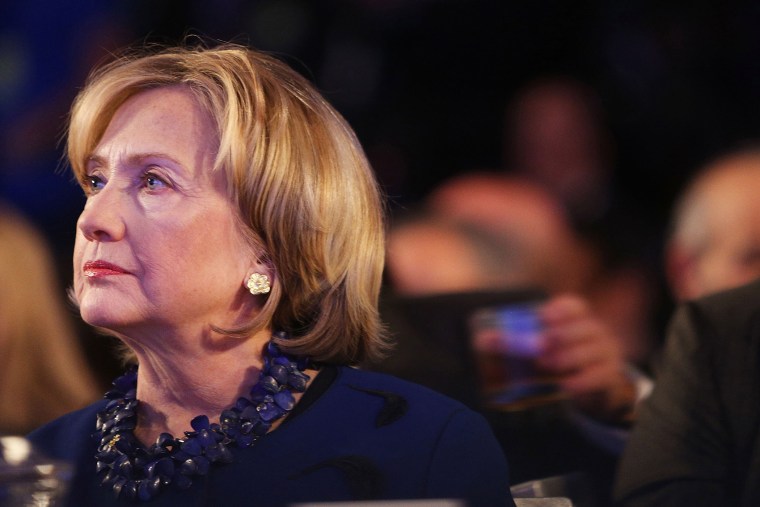The Democratic Party was ripped open last week as the party’s leader in the House and one of its brightest stars in the Senate openly took on the president. But the party’s most likely future leader was nowhere to be found.
Hillary Clinton, the former secretary of state and likely future presidential candidate, stayed out of the debate on the $1.1 trillion government spending bill known as the Cromnibus, as well as the partisan debate around the use of torture under the Bush administration sparked by the release of a Senate report last week.
And while Clinton often waits until she has a pre-scheduled, unrelated speech to address a major topic of national importance, she did not use the opportunity of an appearance Monday morning to comment on the issues.
RELATED: Warren and Clinton allies debate
The event marked the launch of a new initiative to collect data on the participation of women and girls in the global economy, a joint venture with the philanthropic organization founded by former New York City Mayor Michael Bloomberg, the United Nations Foundation, and the Clinton family foundation.
"Data not only measures progress, it inspires progress,” Clinton said. “It’s not enough any longer to make the case on the moral rights ground … [We need] an evidence-based case for investing in women and girls.’’ Data has become a passion of Clinton’s, while the plight of women and girls has been a motivating struggle of the former first lady since she was in law school.
Clinton spoke for about 10 minutes, before ceding the podium to a string of other leaders and activists in this area, including her daughter, so it may have been a less than ideal venue to discuss politics.
But nor did Clinton put out a statement on either the Cromnibus or the torture report, as she did following President Obama’s executive action on immigration last month. And her Twitter feed, with its 2.5 million followers, seemed unaware of the difficult news, tweeting most recently more than 10 days ago.
It’s a pattern for Clinton who, as a private citizen, is free of the responsibility of having to cast difficult votes or make official statements on thorny issues of the day. There was no good position Clinton could have taken on the Cromnibus. Her choice was either to distance herself from the president, or aggravate the left and she chose to do neither.
But in addition to the rewards of her strategy, there are some risks for the likely future presidential candidate.
Clinton has already been knocked by both the right and left over her decision not take a stance on the Keystone XL pipeline, and was criticized by civil rights leaders for waiting almost 20 days speak about Ferguson after Michael Brown’s sparked protests. It will be impossible for Clinton to avoid tough issues if she decides to run for president again, and her allies says he’s enjoying the rare semblance of normal life she has now.
But with many already looking to Clinton as the future leader of her party, she will likely continue to be looked at for leadership and criticized when she declines to provide it.
